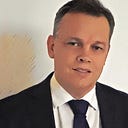In 1817 Romantic Poet John Keats [1] coined the phrase Negative Capability [2] to characterise the capacity of the greatest writers to pursue a vision of artistic beauty even when it leads them into intellectual confusion and uncertainty, as opposed to philosophical certainty.
The catalyst for Keat’s passionate response was his disagreement with English poet and philosopher Samuel Coleridge [3], whose quest for definitive answers over beauty laid the foundations for modern-day reductionism [4].
Poets and philosophers have used the term to describe the ability of the individual to perceive, think, and operate beyond the state of knowing by embracing uncertainty and making peace with life’s mystery and ambiguity.
Alan Watts, in his 1951 book The Wisdom of Insecurity: A Message for an Age of Anxiety [5], argues that the root of our human frustration and daily anxiety is our tendency to live for an assured future driven by a deep desire for certainty.
A quote:
“The best predictions are still matters of probability rather than certainty, and to the best of our knowledge, every one of us is going to suffer and die. If then, we cannot live happily without an assured future, we are certainly not adapted to living in a finite world where, despite the best plans, accidents will happen, and where death comes at the end.”
He then goes on to argue that our only chance for awakening from this vicious cycle is by bringing our full awareness to our present experience:
“There is a contradiction in wanting to be perfectly secure in a universe whose very nature is momentariness and fluidity. But the contradiction lies a little deeper than the mere conflict between the desire for security and the fact of change. If I want to be secure, that is, protected from the flux of life, I am wanting to be separate from life. Yet it is this very sense of separateness which makes me feel insecure. To be secure means to isolate and fortify the “I,” but it is just the feeling of being an isolated “I” which makes me feel lonely and afraid. In other words, the more security I can get, the more I shall want.”
By letting go of this innate desire for certainty, control, and absolute truths” & beliefs”, we can change the world.
A recognition that:
“Our knowledge is a little island in a great ocean of non-knowledge” — Isaac Bashevis Singer [6].
Through a dialectic, learning to learn [7], collaboration, embracing a diversity of perspectives (a heterodoxy [8] ), curiosity, listening and human sensemaking, new pathways emerge to navigate this white-water complex interdependent world.
A third way between two classical poles – extreme scepticism [9] and extreme dogmatism [9] that embraces reflexivity.
“To doubt everything or to believe everything are two equally convenient solutions; both dispense with the necessity of reflection.”…
— Jules Henri Poincare
The alternative is an increasingly classical binary thinking [10] polarised cul-de-sac summed up in Barry Lam’s Hi-Phi Nation (Episode Seven) [11]:
“One thing we can do is drown ourselves in a sea of ideas, mostly false ones, in the hope that we find that one insightful nugget of wisdom we wouldn’t otherwise find if we were too cautious. If we did that, we end up believing more true things but a lot of false things as well as being credulous.
Or we could build a very strong border wall and do extreme vetting of ideas to keep out all the false ones so that only the true ones get in and we are never duped or harmed. If we did that, we would be sceptical, we are not going to be wrong very much, but we might not have much to believe either”…
Footnote:
[1] John Keats — https://www.poetryfoundation.org/poets/john-keats
[2] John Keats and Negative Capability — https://www.bl.uk/romantics-and-victorians/articles/john-keats-and-negative-capability
[3] Samuel Coleridge — https://www.poetryfoundation.org/poets/samuel-taylor-coleridge
[4] Reductionism — https://iep.utm.edu/red-ism/
[5] The Wisdom of Insecurity: A Message for an Age of Anxiety — https://www.penguin.com.au/books/wisdom-of-insecurity-9780712695886
[6] Isaac Bashevis Singer — https://www.nobelprize.org/prizes/literature/1978/singer/biographical/
[7] Changing Patterns of Work and Learning | Esko Kilpi | TEDxGurugram — https://www.vexplode.com/en/tedx/changing-patterns-of-work-and-learning-esko-kilpi-tedxgurugram/
[8] Heterodoxy Academy — The Problem — https://heterodoxacademy.org/the-problem/
[9] Make Ticker Tape Parades Great Again — https://www.hoover.org/research/make-ticker-tape-parades-great-again-peter-thiel-celebrating-heroes-madness-crowds-crypto
[10] Beyond Binary Thinking – Zen kōans: Unsolvable enigmas designed to break your brain – Puqun Li – https://youtu.be/9p5Oi4wPVVo
[11] Barry Lam’s Hi-Phi Nation (Episode Seven) — https://hiphination.org/complete-season-one-episodes/episode-7-hackademics-ii-the-hackers/
